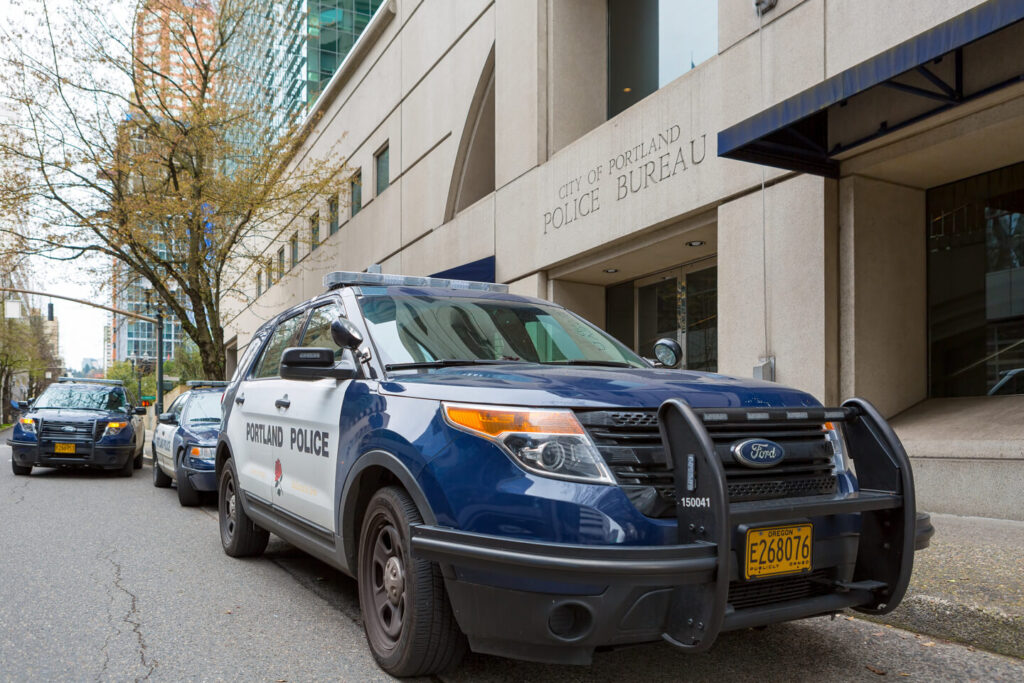
As a “laboratory of democracy,” Oregon’s experiment with decriminalizing all drugs—including hard drugs like heroin and meth—has run its course and come to an end. The Oregon law was reversed on April 1 under new legislation signed to impose misdemeanor charges for crimes involving hard drugs.
On Monday, Oregon Gov. Tina Kotek signed House Bill 4002, which reverses the first-of-its-kind, voter-approved drug decriminalization law that was enacted three years ago. HB 4002 was approved by the state Senate 21-8 after the House approved it 51-7.
In 2020, nearly 60% of Oregon voters passed the state’s drug decriminalization law, Measure 110, which in a radical move, decriminalized the possession of small amounts of illicit drugs and was designed to direct drug addicts to rehab instead of doing time. The bill made the personal use possession of illegal drugs such as heroin, cocaine, and meth punishable by a mere ticket and a maximum fine of $100.
But critics claim the law created a hellscape of drug addicts on the streets of cities like Portland. The New York Times called it a “deluge of overdose deaths.” How true are these claims? Oregon ranked 17th for the highest drug-related deaths last year, with 30 fentanyl overdose fatalities for every 100,000 people—up from 36th out of the 39 states (including Washington, D.C.) that reported fentanyl overdose deaths in 2019. This was too high of a climb amid the state’s experimental drug law, some analysts said, however it was still lower than the rates seen in other states.
Fast forward to August 2023, and 56% of Oregonians said they disapproved of the drug decriminalization law, and lawmakers—Republicans and Democrats included—introduced legislation to reverse the bill. Liberal commentators, however, said the state is reigniting a police state.
Statesman Journal reports that beginning on Sept. 1, Class E violations, which were created under Measure 110, eliminating criminal penalties for possession of small amounts of illegal drugs, will be repealed under the new law. The new law means that people caught with small amounts of illegal drugs will face a new “drug enforcement misdemeanor.”
HB 4002, raised the punishment for personal use possession to a misdemeanor punishable by up to six months in jail. It gives cops the green light to confiscate the drugs and crack down on their use on sidewalks and in parks.
It also establishes ways for rehab treatment to be offered as an alternative to jail time by encouraging law enforcement agencies to create “deflection programs” that would divert people to addiction and mental health services instead of the criminal justice system.
In a letter to Senate President Rob Wagner and House Speaker Julie Fahey, Gov. Kotek wrote that the bill still encourages law enforcement to prioritize “pre-arrest deflection.”
“Implementation of House Bill 4002 will be complex, but committing to clarity and coordination is one way to improve its likelihood of long-term success,” the governor stated. “Therefore, I direct the Criminal Justice Commission to leverage their full authority for deflection programs to use a standardized certification document that is easily identifiable as evidence of a person’s successful completion.”
“Committing to this approach is one strategy to reduce collateral consequences of justice system involvement and can help mitigate the racial and ethnic disparities this legislation is projected to create,” Kotek stated in her letter. “For example, pre-arrest deflection for all standalone PCS charges can support a simplified sealing process later by reducing the number of records created and, based on historical data, could potentially reduce the disparate impact of criminalization of communities of color.”
Republican leadership responded to the governor signing HB 4002.
“Republicans stood united and forced Democrats to do what Oregonians demanded: recriminalize drugs,” said House Leader Jeff Helfrich. “Make no mistake, this bill is not enough to undo the disaster of Measure 110. House Republicans are ready to continue the work we started and bring real change to Salem in the next session.”
Rep. Tim Knopp, a Republican, said that the bill ends a crisis that the state was grappling with.
“Make no mistake, this bill is not enough to undo the disaster of Measure 110,” Knopp said in a statement. “House Republicans are ready to continue the work we started and bring real change to Salem in the next session.”
“Now that the Governor has given the recriminalization bill her stamp of approval, we can finally end the chapter on Oregon’s experiment with decriminalizing hard drugs.”
“HB 4002 is not a perfect solution; legislators will have much more work to do in upcoming sessions. But it sets a standard for how the state should approach the drug addiction crisis: by empowering law enforcement and our behavioral health systems to work together to help Oregonians struggling with chronic addiction seek life-saving treatment.”
The changes under the new law take effect Sept. 1.
Read full article on High Times

